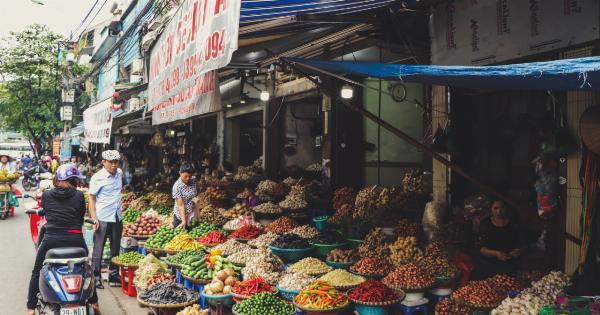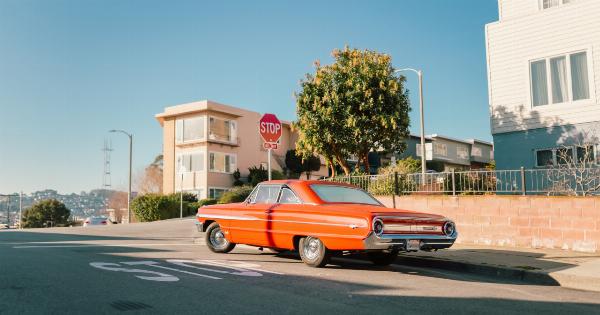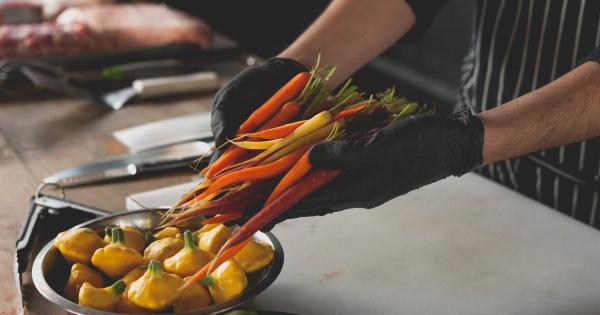Whether you’re going on a road trip, picking up groceries, or just running errands, it’s important to keep your food safe in the car. Here are 30 ways to do just that:.
1. Use a cooler
Invest in a good quality cooler that maintains a consistent temperature and keep it in the trunk or back seat of your car. This is especially important for perishable foods like meats, dairy, and fresh produce.
2. Keep a thermometer handy
Use a food thermometer to ensure that your cooler stays at the correct temperature (below 40°F). This will keep your food safe from bacteria and other harmful pathogens.
3. Pack ice packs
Use ice packs to keep your food cold in the cooler. They’re reusable and won’t melt all over your food like regular ice.
4. Freeze your food ahead of time
If possible, freeze your food before packing it in the cooler. This will help it stay cold longer and also give you more space to pack other foods.
5. Use insulated bags
If you don’t have a cooler, use insulated bags to keep your food at a safe temperature. They’re perfect for short trips or when you only have a few items to keep cold.
6. Avoid direct sunlight
Keep your cooler or insulated bags out of direct sunlight. This will help maintain the temperature and keep your food from getting too warm.
7. Keep a first aid kit in your car
In case of a spill or cut, keeping a first aid kit in your car will make sure you’re prepared for any accidents that may occur while transporting your food.
8. Use a travel food container
Invest in a travel food container with compartments to keep your meals organized and prevent spills.
9. Use reusable containers
Avoid using disposable containers and bags whenever possible. Not only is it better for the environment, but it’s also more cost-effective in the long run.
10. Keep a roll of paper towels or hand wipes
Accidents happen, so keeping a roll of paper towels or hand wipes in your car can be a lifesaver when transporting messy foods.
11. Avoid packing food that requires refrigeration for too long
If you’re traveling for multiple days, avoid packing perishable items that require refrigeration for too long. Opt for dried or non-perishable snacks instead.
12. Pack foods separately
If you’re packing multiple foods in one cooler or insulated bag, keep them separated to avoid cross-contamination.
13. Use plastic bags to separate items in the cooler
Use plastic bags to organize and separate different types of food in the cooler.
14. Keep an emergency kit in your car
In case of a breakdown or emergency, having an emergency kit in your car will make sure you’re prepared for any situation.
15. Pack a portable grill or stove
If you’re planning on cooking food while on the road, pack a portable grill or stove for a safe and convenient option.
16. Avoid packing foods with a strong odor
Foods with a strong odor, such as fish or onions, can be unpleasant for other passengers in the car. Try to avoid packing them or keep them in a sealed container.
17. Keep a trash bag in your car
Keep a trash bag in your car to dispose of any food waste or packaging.
18. Don’t leave food in the car for too long
If you’re running errands or making stops, don’t leave your food in the car for too long. This can cause the temperature to rise and potentially spoil your food.
19. Check the expiration dates
Before packing your food, check the expiration dates to make sure it’s still safe to eat.
20. Pack non-perishable snacks
If you’re not traveling with a cooler, pack non-perishable snacks like granola bars, dried fruit, and nuts.
21. Use a spill-proof travel mug
Invest in a spill-proof travel mug for hot beverages like coffee or tea.
22. Keep liquids in a separate container
If you’re transporting liquids, keep them in a separate container to avoid spills and leaks.
23. Pack utensils
Don’t forget to pack utensils if you’re planning on eating your food on the go.
24. Transfer food to a travel-safe container
If you’re bringing homemade meals or dishes to a party, transfer them to a travel-safe container that won’t spill or leak.
25. Store fruits and vegetables in a ziplock bag
For longer-lasting freshness, store fruits and vegetables in a ziplock bag with a damp paper towel.
26. Bring a water bottle
Staying hydrated is just as important as keeping your food safe. Bring a water bottle with you to ensure you stay hydrated throughout your travels.
27. Keep foods out of direct heat
Avoid storing food near sources of direct heat, such as the engine or exhaust of your car.
28. Use a food cover
If you’re having a picnic or eating outdoors, use a food cover to keep bugs and other pests away from your food.
29. Pack disposable gloves
Disposable gloves can come in handy when handling raw meat or other foods that may contain harmful bacteria.
30. Wash your hands regularly
It’s always important to wash your hands, especially when handling food. Bring a small bottle of hand sanitizer or find a restroom to wash your hands regularly.



























